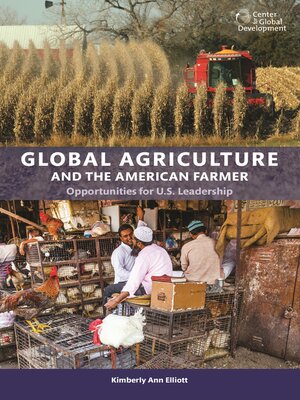Global Agriculture and the American Farmer
ebook ∣ Opportunities for U.S. Leadership
By Kimberly Ann Elliot

Sign up to save your library
With an OverDrive account, you can save your favorite libraries for at-a-glance information about availability. Find out more about OverDrive accounts.
Find this title in Libby, the library reading app by OverDrive.



Search for a digital library with this title
Title found at these libraries:
| Library Name | Distance |
|---|---|
| Loading... |
The United States is one of the world's largest producers and exporters of a range of agricultural commodities, so U.S. policies have big effects on global food security and other global public goods linked to agriculture. On the positive side of the ledger, President Obama created the Feed the Future aid initiative to promote agricultural development in poorer countries as a tool to achieve the global goals of ending hunger and extreme poverty, which are mostly rural. But that generosity is undercut by U.S. support for farmers and livestock producers that suppresses global prices for developing country producers, increases food market volatility, increases greenhouse gas emissions, and contributes to the spread of antibiotic-resistant bacteria.
In this book, Elliott focuses on three policy areas that are particularly damaging for developing countries: traditional agricultural subsidy and trade policies that support the incomes of American farmers at the expense of farmers elsewhere; the biofuels mandate, which in its current form increases market volatility while doing little if anything to mitigate climate change; and weak regulation of antibiotic use in livestock. While noting that broad reforms are needed to fix these problems, Elliott also identifies practical steps that U.S. policymakers could take in the relatively short run to improve farm policies for American taxpayers and consumers as well as for the poor and vulnerable in developing countries.
In this book, Elliott focuses on three policy areas that are particularly damaging for developing countries: traditional agricultural subsidy and trade policies that support the incomes of American farmers at the expense of farmers elsewhere; the biofuels mandate, which in its current form increases market volatility while doing little if anything to mitigate climate change; and weak regulation of antibiotic use in livestock. While noting that broad reforms are needed to fix these problems, Elliott also identifies practical steps that U.S. policymakers could take in the relatively short run to improve farm policies for American taxpayers and consumers as well as for the poor and vulnerable in developing countries.







